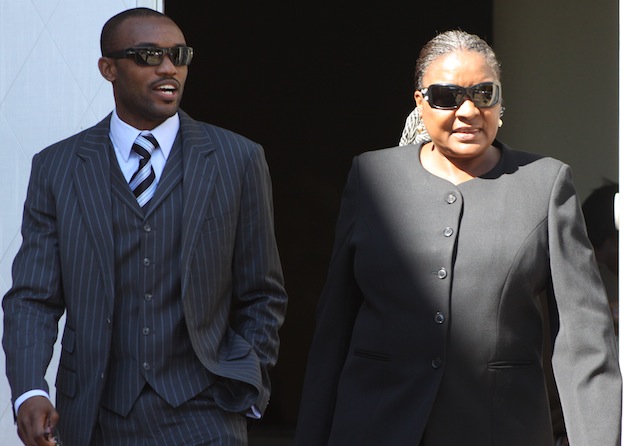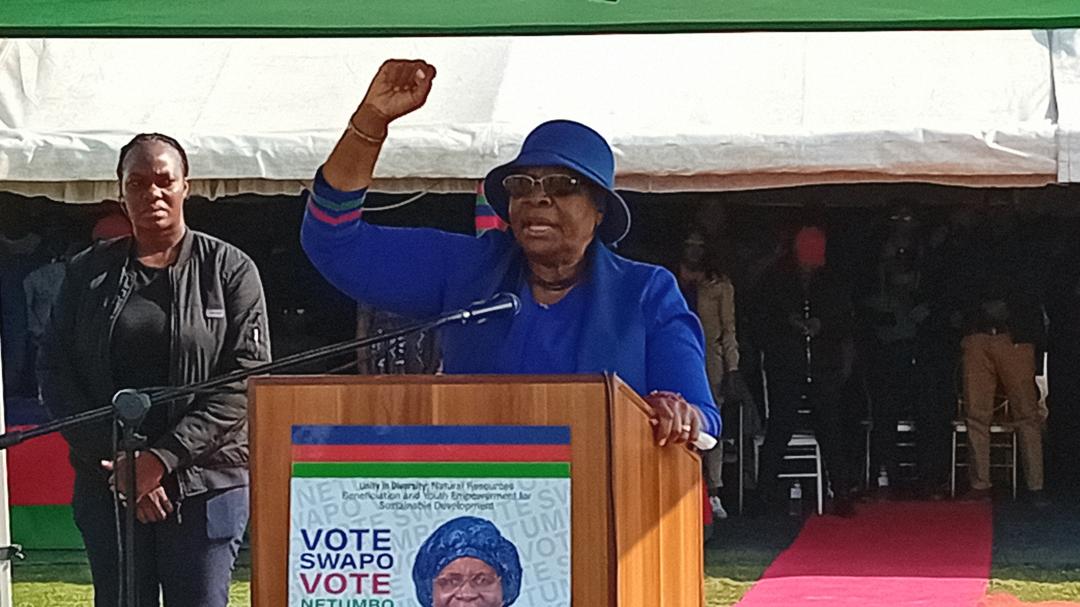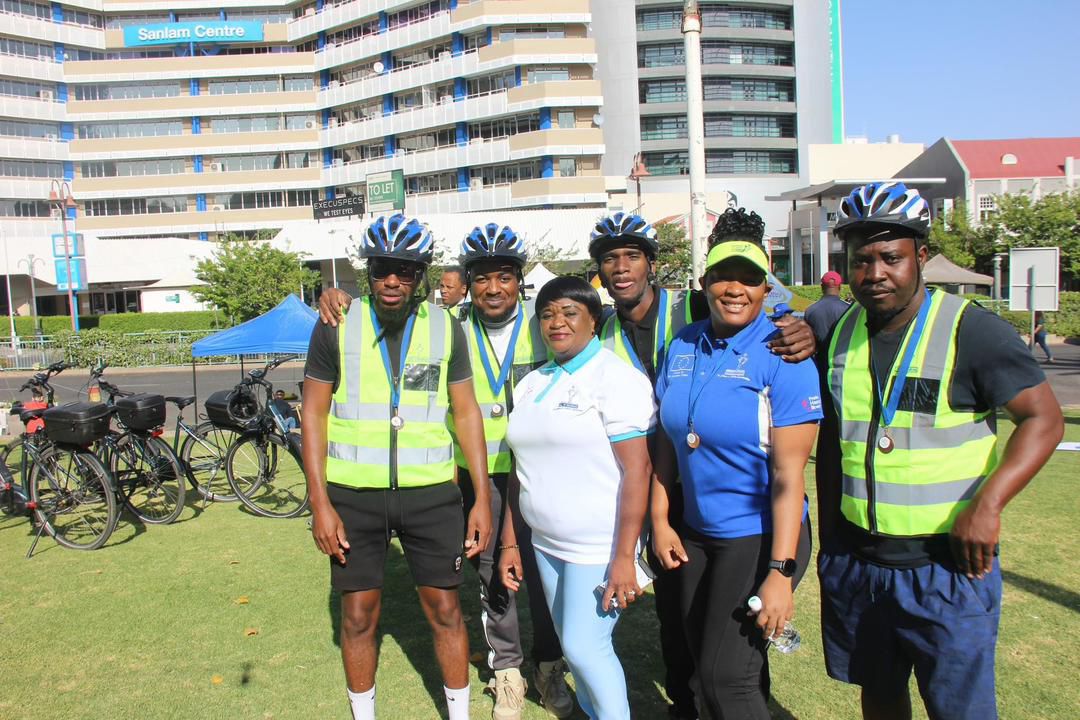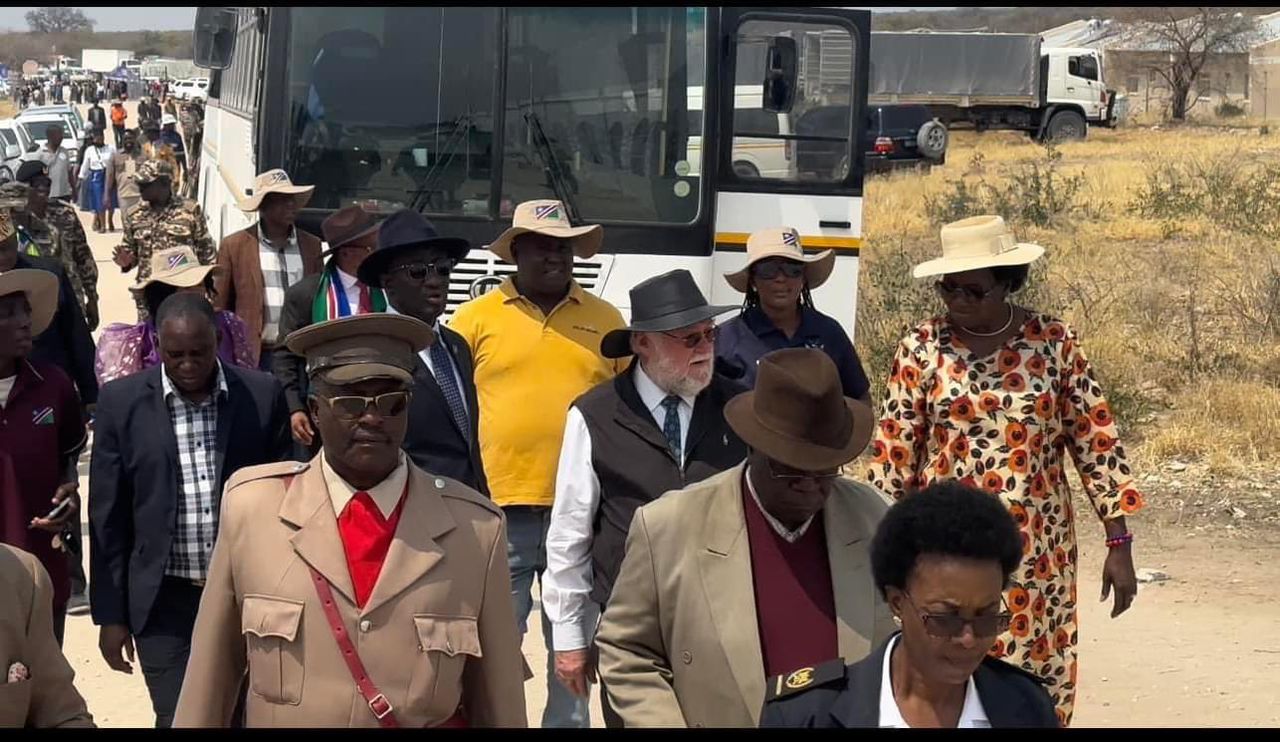THE High Court trial of former Public Service Commission member Teckla Lameck, her business partner, Kongo Mokaxwa, and Chinese national Yang Fan remains stalled at the same point it had reached before the three accused asked for the recusal of the judge dealing with their case.
Following the dismissal of their application for the recusal of Judge Maphios Cheda in November last year, Lameck and her co-accused now want to appeal to the Supreme Court in an attempt to get another judge to preside over their trial.
The trial, in which 20 prosecution witnesses have testified since its start in April 2013, would have to begin afresh before another judge if the three accused succeed in getting Judge Cheda removed from their case.
In the Windhoek High Court on Friday, Judge Cheda heard oral arguments from senior counsel Raymond Heathcote, representing Lameck, Mokaxwa and Yang, and State advocate Shakwa Nyambe on an application from the three accused to be given leave to appeal to the Supreme Court against the ruling on their recusal application that the judge delivered on 14 November.
After hearing the arguments, Judge Cheda postponed the case to 10 April for the delivery of his judgement on the latest application from the three accused.
Lameck, Mokaxwa and Yang pleaded not guilty to all charges at the start of their trial.
The charges include a count of fraud in connection with a transaction in which the Ministry of Finance bought X-ray scanning equipment at a total cost of US$55,3 million (then about N$477 million) from a Chinese company, Nuctech, which was represented by Yang, in early 2009.
The prosecution is alleging that the price of the scanning equipment was inflated to enable Nuctech to pay a ‘commission’ of at least US$12,8 million to a close corporation of Lameck and Mokaxwa, Teko Trading CC, while Teko Trading played no role in the transaction between the ministry and the Chinese company.
Lameck and Mokaxwa are also accused of having defrauded the Swapo-owned Namib Contract Haulage, where Mokaxwa was employed and Lameck was a company director, by inflating the price that the company had to pay for lorries and buses it imported from China in early 2007.
Heathcote asked Judge Cheda on Friday not only to allow the three accused to appeal to the Supreme Court, but also to reserve a question of law that is to be forwarded to the Supreme Court, which is whether the judge erred when he refused the application for his recusal, and to make a special entry on the trial record to the effect that the trial proceedings are irregular.
If an appeal to the Supreme Court is allowed, it would keep the trial suspended until the appeal has been decided.
Heathcote argued that Judge Cheda wrongly declined the application for his recusal. It would not be fair to expect the three accused to continue to sit through a trial that could later be set aside if an appeal court decides that the judge should have recused himself as requested by them, he argued.
Nyambe argued that the law allows a mid-trial appeal against a recusal ruling only in exceptional circumstances. Such circumstances are not present in the trial at hand, he argued. He also argued that the accused did not have reasonable grounds to support an apprehension that Judge Cheda was biased in their case.
Lameck, Mokaxwa and Yang based their recusal application on a ruling that Judge Cheda delivered on 25 June last year. In that ruling, he dismissed objections that the legal team of the three accused had raised in an attempt to stop the prosecution from using evidence about bank statements obtained through summonses that were issued by the director of the Anti-Corruption Commission.
They claimed that in his ruling, Judge Cheda dealt with the validity of search warrants instead of summonses, with the effect that he made a ruling on a point not yet raised and argued before him.
Judge Cheda said in his recusal judgement that the prosecution had thus far in the trial not tried to introduce evidence obtained through search and seizure warrants, and neither the court nor the defence knew if the State would try to rely on evidence gathered with the use of such warrants.
In respect of the defence’s argument that he referred not only to summonses, but also to warrants in his ruling in June, Judge Cheda noted that the defence actually itself also referred to both summonses and search warrants in the notice in which it objected against evidence obtained through the use of summonses issued by the director of the ACC.
The three accused failed to advance cogent reasons that would have justified his recusal from their trial, Judge Cheda found.
The defence team’s attack on the ACC summonses, followed by the attempt to get Judge Cheda off the case, has kept the trial stalled since September 2013.
Stay informed with The Namibian – your source for credible journalism. Get in-depth reporting and opinions for
only N$85 a month. Invest in journalism, invest in democracy –
Subscribe Now!






